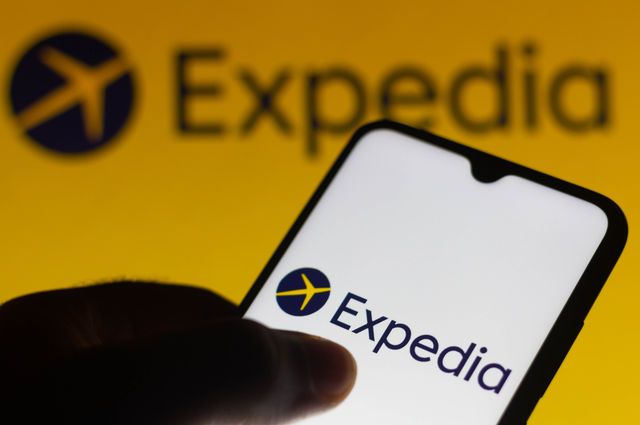Is Expedia’s new technology platform going to help or hurt hoteliers?
8 experts shared their view
At the recent Expedia Group's Explore Partner Event, the OTA introduced a new technology platform called 'Open World'. The platform is designed for partners to leverage and configure products and services and contains an entire e-commerce suite, with components like payments, fraud, conversations and service.
"Whether you're a bank with a rewards program, an airline who wants to expand their offering, a specialty travel agent focused on underserved travelers or a TikTok influencer helping the world dream of their next destination, if you want to be in the travel business, the Open World platform can help anyone succeed," says Peter Kern, Vice Chairman and Chief Executive Officer of Expedia Group.
"By helping everyone take advantage of our technology and supply, Open World will make it possible for our new and existing partners to thrive in the travel market with a suite of solutions tailored to their needs, all powered by our immense artificial intelligence and machine learning capabilities," says Rathi Murthy, Expedia Group chief technology officer.
Obviously, Expedia aims to enable demand generators like airlines, specialty tour operators and travel agencies, wholesalers, retail loyalty programs, etc. to develop customized applications based on Expedia's travel inventory availability and pricing feeds.
The question is, will Expedia's new technology platform 'Open World' help or hurt hoteliers?
Consumers like and demand travel companies to offer a one-stop shopping experience. Hence, it is not surprising to see OTAs, Airbnb, and even Google and Amazon strive to provide a “total travel experience.” Everyone in the market wants to become a mega tourism enterprise.
I believe the answer to Max's question depends on the position that a hotel (chain) wants to take in the 'Open World.' It can be helpful for hotels to actively participate in Expedia's virtual marketplace. Hotels can still win if using the distribution channel offered in the 'Open World' effectively. The catch is that they must be more transparent on prices or adopt new pricing strategies.
I am not sure if a hotel has the choice not to take an active part in the 'Open World.' If Expedia does not roll out the 'Open World,' another OTA or tech firm will still introduce a new digital platform for similar services. Hotels will likely lose in the competition if they refuse to “play along” with these mega tourism companies that offer “everything.”
It's a fantastic move by Expedia and Kudos to them for doing it. It will be a nightmare for hotels though as this provides great opportunities but also put hotels against the other OTA´s. We cannot forget that those actions are to drive more travellers to Expedia as well as make money for Expedia across all connection points and data points. So the bigger question will be what will Booking.com do to retaliate?
What is fascinating is that the open world might also just end the "pricing" era where revenue systems have been used. Those will be outdated as too many factors are now going in - at least on this channel and at a granularity that is still out of reach of revenue pricing tools. Price will become only a small part of the equation and the human / hotel will take center stage again - which in my book highlights only that we need to do more to get the users of new systems better at what they do.
Hotels however can look forward to new exciting times where more and more opportunities will present themselves - however ONLY if hotels are willing to deliver on their promises and have the right customers... mismatch of product and guest might be biting back faster and harder than before.
After reading Kern and Murthy's description of Open World, I can't help thinking that this is just a rebrand of EPS.
Not sure? Spot the difference:
From EPS' website: "Expedia Partner Solutions unlocks the power of Expedia Group for thousands of partners around the world. Our mission is to fuel our partners' growth through our unparalleled technology, travel supply, and support services."
From Open World's introduction: "By helping everyone take advantage of our technology and supply, Open World will make it possible for our new and existing partners to thrive in the travel market with a suite of solutions tailored to their needs."
It sounds just like EPS with a new name to me...
Prove me wrong.
I see four parts to the Expedia Open World initiative that will impact hotels. In the first instance it is yet another threat to hotels' book direct efforts. It's unlikely that Open World will drill into new guest segments, rather it will create a redistribution in the existing landscape where Expedia will end up with a bigger piece of the same pie. It will be interesting to follow how some of the other major OTAs, like Booking.com will respond to this in order to protect/win back market share. For hotels, it will be difficult to compete with Expedia's huge marketing budgets and the opportunities that will follow to win potential guests in more niche markets.
Secondly, they plan to base the new Expedia hotel rating on the full travel experience, rather than the known and less colourful guest satisfaction score. I suspect that the idea behind this is that today's traveller is looking for experience rather than hotels that tick a couple of predefined boxes. This change is quite similar to what we see with the recent Airbnb release, which allows bookers to navigate through experiences rather than locations. As a hotelier I'd seize this moment to take a look at hotels that might be further away, but offer similar experiences to define the compset.
A third pillar to the initiative is linked to an all in one loyalty program that is boosted by not only stays, but also car rental, flights, packages and activities, bookable on Expedia.com. With hotel loyalty programs already struggling to compete with OTA loyalty offerings, it's perhaps time to rethink the entire system.
Finally, I noticed Expedia announced “smart shopping” to allow guests to add upgrades and additional services. I would recommend to keep this in your own hands as a hotelier because often the margin on these upsell opportunities are great. It would be a shame to see this commissioned as well.
I have followed this development with great interest as I believe it might be disruptive for the OTA landscape. In conclusion, I believe the big winner of this initiative will likely be Expedia - but time will tell.
It was 2019 when Expedia signed an industry-first agreement to become the optimized distributor for Marriott worldwide and became the single getaway for redistribution of Marriott's wholesale inventory. This was probably one of the first steps that led to the development of what is becoming Open World today. Open World is meant to “democratize the business of travel” according to Expedia; simply put it means to make the travel distribution accessible at all levels: from the big company to the small local business.
The logic behind Expedia's new technology platform is not different from what travel connectors or travel switches/hubs (like TravelgateX or Impala to mention a couple) have been doing for years now. The goal is to facilitate an open and wide distribution by creating a marketplace that allows different players in the travel industry to feed inventory and rates from a unique source through API connections.
As we all know how complex the online distribution is, we must acknowledge that this kind of API technology commoditized the market around prices as there can be no control over how the inventory and rates of one hotel are being redistributed once they are fed through the APIs of the travel connector.
Therefore, I cannot help to doubt the statement that Open World will focus on transparency around value and expectations rather than price. It might be valuable for travelers, but as for hotels, I don't see how. I am not questioning Expedia's good intentions here, but this is my opinion. We are (probably us all in the hotel industry right now) still experiencing daily issues with Hotels that have no idea who is distributing and undercutting their rates on one side, and OTAs/wholesalers that struggle to understand which of their partners is distributing their rates and undercutting the hotel on the other side. I personally have experience with OTAs that price checked on other competition websites, to find out that the rate displayed was sourced from their own inventory and re-distributed by one of their partners (so they were are actually price checking against themselves).
The truth is: once one hotel's inventory and rates are fed, a labyrinth of redistribution starts, and Expedia's Open World will not make the hotel's life any easier or less chaotic.
The good news is that the distribution jungle will not be any different from what we are already used to now.
Despite intense attempts, I was unable to find any mention or details of Open World on any of the Expedia Group websites beyond links to press coverage in various news outlets. Hence, without any details provided by Expedia any thoughts about the new platform helping or hurting hoteliers can be pure speculation.
Having said that, however, any platform which helps hotels drive incremental revenues at a reasonable cost of sales/distribution should be beneficial to hoteliers if they do not have the means to achieve similar reach at a similar cost while protecting their brand and positioning through other channels. As with any third-party initiative, hoteliers will have to look carefully at the cost/benefit balance and where this new initiative can help them increase their top and bottom line vs. alternative means.
Although for certain hotels in some markets the new marketplace from Expedia might be convenient and even helpful, I do not really see how it can add value to most properties.
The pandemic has shown that most hotels have improved their distribution and marketing efforts, and the volume of bookings coming through the direct channel has increased dramatically.
This means that more and more hotels are mainly relaying on their own sales and marketing efforts to gain new clientele, or attract the already loyal ones.
Having to get into Open World will most likely mean paying very high commissions for a service that is already being provided online.
In any case, Open World will still have traction with certain actors that will be there because "they have to", and some independent hotels that believe it can be a good place to showcase themselves.
Expedia's Open World technology platform is a natural progression from several existing B2B initiatives:
- Expedia Affiliate Network (EAN), the largest travel-related affiliate program in the world, boasting hundreds of thousands of affiliates around the world. These affiliates feature Expedia's booking engine, banners, links on their websites and earn 2%-7% commissions on every Expedia booking they make, initiate or provide a referral to. EAN generates millions of bookings every year.
- Expedia Partner Solutions (EPS), which provides complimentary inventory feeds on travel-related sites. Ex. Airline reservations and dynamic packaging air+hotel, car rental, etc. on hotel websites or hotel reservations and dynamic packaging hotel+ air, car rental, etc. on airline websites. EPS also provides its full ARI (availability, rates, inventory) to banks and retailers and their reward programs, etc.
- Expedia Travel Agent Affiliate Program (TAAP), which has 3 million agent-users in more than 30 countries. TAAP enables travel advisors to earn commissions in four tiers: standard, silver, gold and platinum, based on their productivity.
- Expedia has been the exclusive global distributor to wholesalers and tour operators of Marriott's B2B rates, content and availability since September 2019.
The above is more than enough to scare hoteliers out of their wits, since you have no idea where your Expedia bookings are actually coming from, or who has access to the availability/rates/inventory you provide Expedia with.
But wait, there is more! The new Expedia Open World tech platform promises even greater technical and distribution flexibility for any demand generator - whether an airline, specialty tour operator, travel advisor, wholesaler or social media influencer retail loyalty programs, etc, which will allow them to develop customized applications based on Expedia's ARI feed for over 1 million hotels and multiunit accommodations.
So, now hoteliers will be even more clueless as to where their rates are featured, and where the Expedia bookings are actually coming from.
What should hoteliers do?
- Assume that any rate you provide Expedia with will become publicly available to travelers around the world - whether on Expedia or its subsidiaries or vast network of affiliates and demand aggregators.
- Maintain strict rate parity across all distribution channels, including Expedia. Provide incentives and value adds to travelers booking directly ( Free breakfast, Wi-Fi, parking, room upgrades, early check-in, etc.)
- Implement a CRM (Customer Relationship Management) technology and program to increase repeat direct business.
- If you don't have one, create a Guest Appreciation Program to reward your direct and repeat direct guests and create a "gated community" where you can offer special perks, packages, upgrades and discounts.








